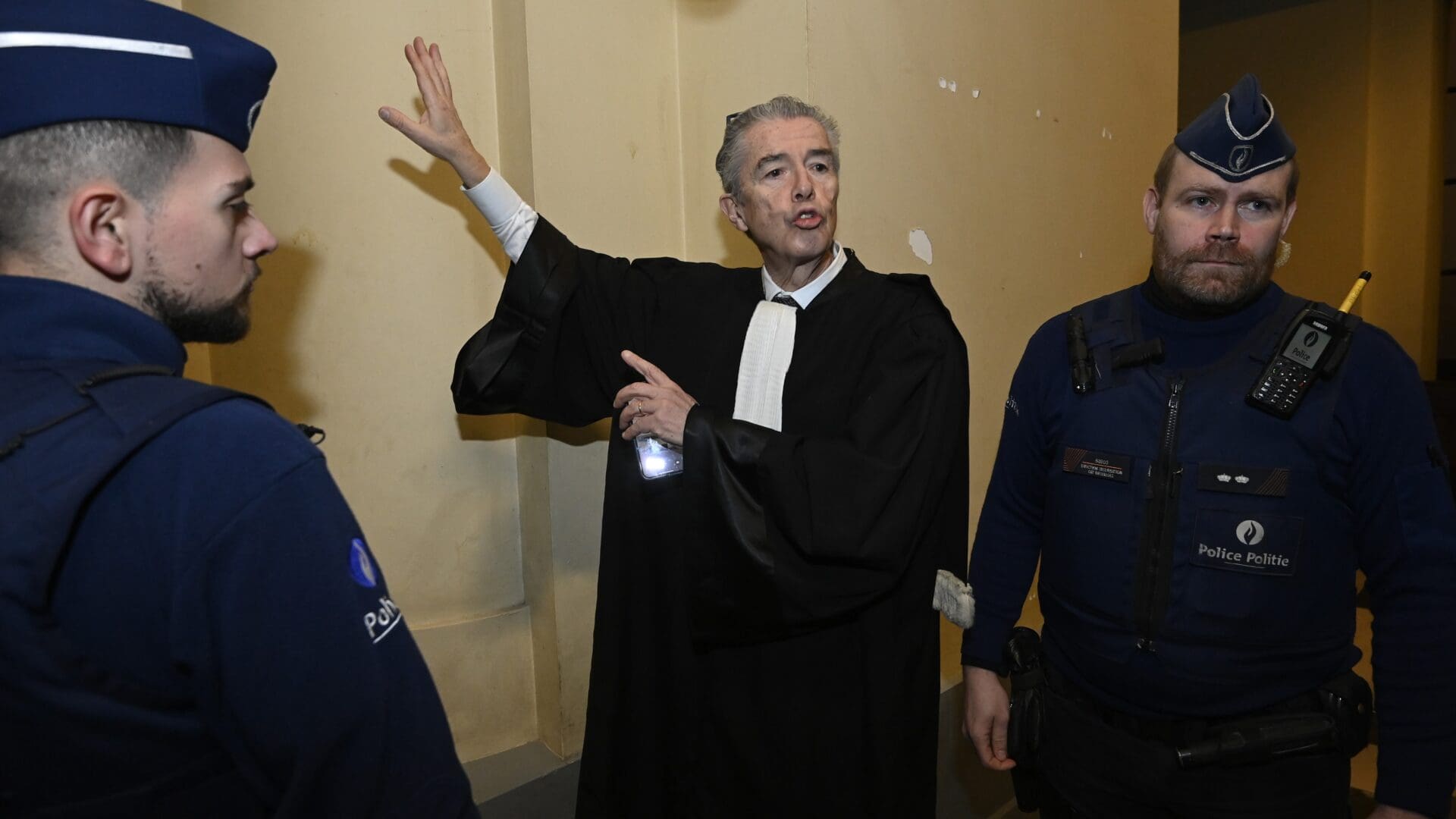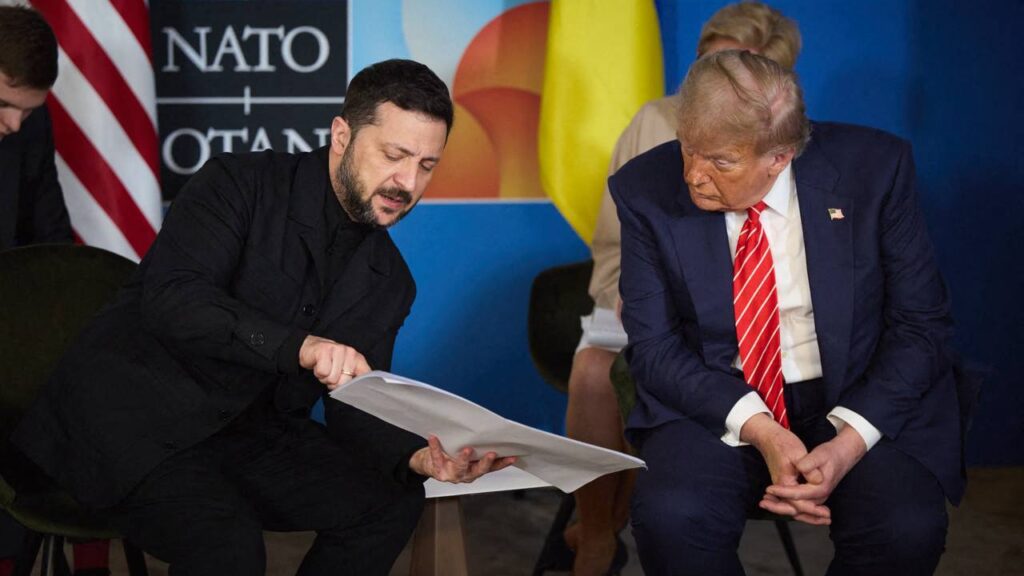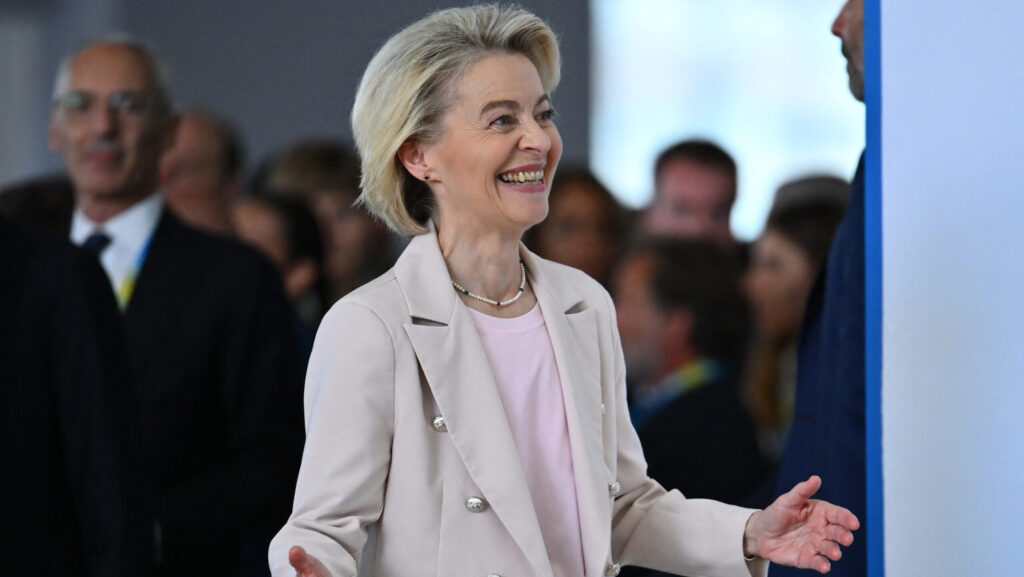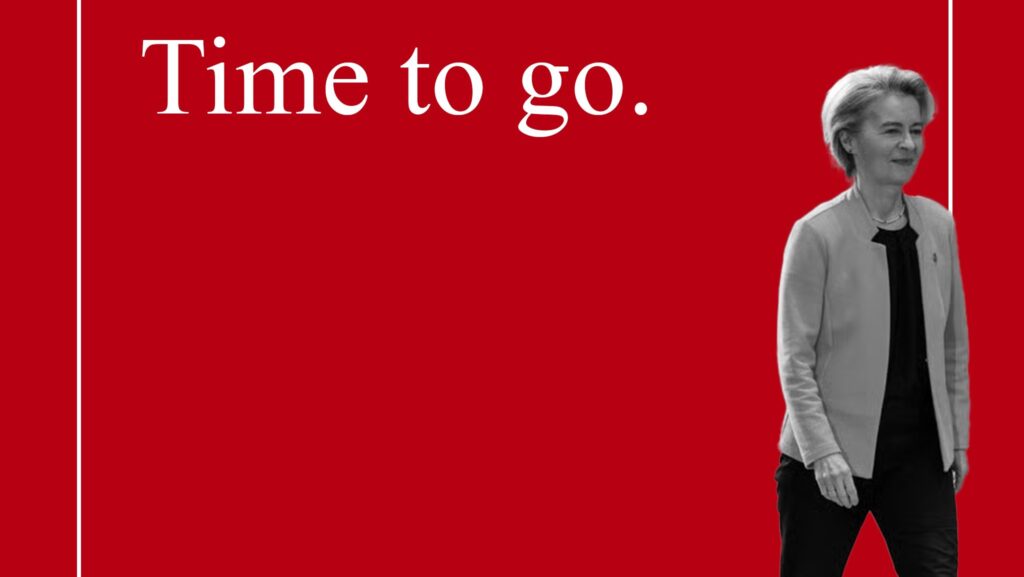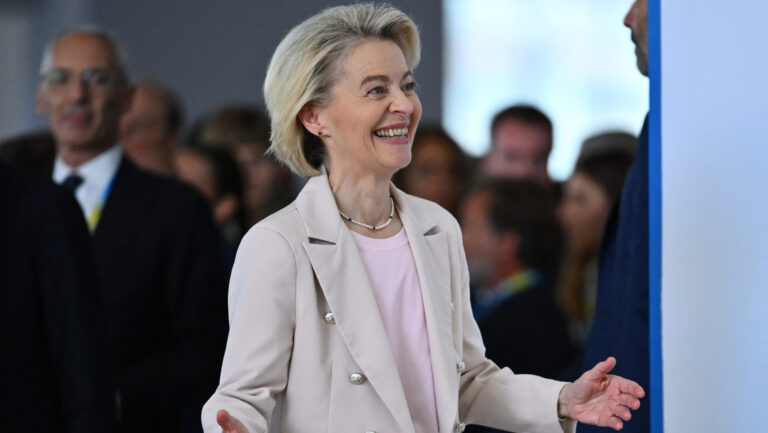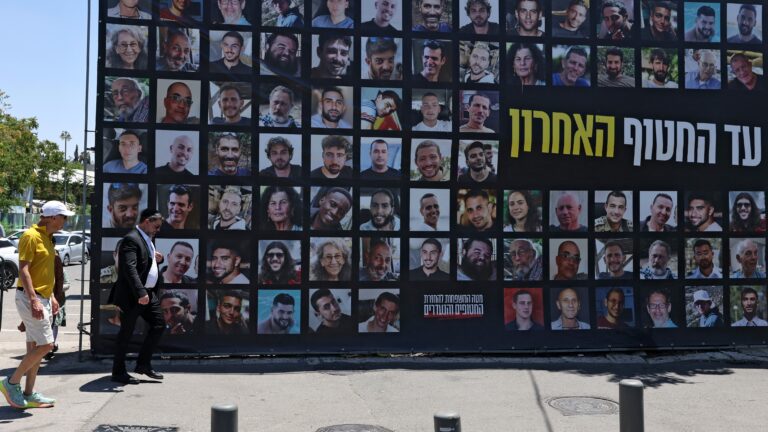The following is a translation of an article written by Bernadett Petri, a researcher at the University of Public Service Institute for Strategic Studies, originally published on Ludovika.hu.
Adopting a Committee on Legal Affairs proposal, the European Parliament waived the immunity of Belgian MEP Marc Tarabella and Italian MEP Andrea Cozzolino, suspects in the Qatargate scandal, at the February plenary session in Brussels. The MEPs can continue their parliamentary activities as independent representatives, while Tarabella, who is the mayor of Anthisnes near the city of Liège in Belgium, will be able to keep not just his mandate in the European Parliament, but even keep his position as local authority leader.
On 16 January, President of the European Parliament Roberta Metsola announced the initiation of the procedures for the waiver of immunity of the two MEPs, after receiving the relevant request from the Belgian authorities as part of the investigation by the Belgian Federal Prosecutor’s Office. Pursuant to the Parliament’s rules of procedure, the requests were forwarded to the Committee on Legal Affairs, which accepted its recommendations on the matter on 30 January. In her draft report, the far-left French MEP Manon Aubry proposed to waive the immunity of the two socialist MEPs so that the Belgian authorities could conduct an investigation against them.
The Essence of the Procedures on Immunity
EU law has recognised the institution of parliamentary immunity since 1965. Between 1994 and 2020, the authorities of a Member State addressed the European Parliament in about 250 cases for the waiver of the immunity of a MEP, which resulted in 90 cases of immunity suspensions.
The immunity of Members of the European Parliament has a twofold nature. In the territory of their own member state, MEPs enjoy immunity according to the rules applicable to representatives of their own national parliaments, the content and framework of which are established by national legislation. In addition, in accordance with EU-level provisions, they enjoy immunity from all kinds of detention and legal procedures in the territory and within the competencies of the other member states. This is provided for in the Article 9 of the Protocol (No 7) on the privileges and immunities of the European Union. The regulation contains a restriction for only one specific case: immunity cannot be invoked in the event that an MEP is caught in the act of committing a crime—as happened in the case of Eva Kaili. The provisions also provide that Members of the European Parliament shall not be subject to any form of inquiry, detention, or legal procedures.
The procedure on immunity is regulated by Rule 6 of Procedure Rules of the EP. If the competent national authority requests the European Parliament to waive the immunity of an MEP or a former MEP, the President of the Parliament announces the receipt of the request at the plenary session and refers it to the competent committee, i.e. the Committee on Legal Affairs. In order to complete the request, the Committee may seek additional information, and the relevant MEP will be given the opportunity to be heard and may submit documents or other written evidence related to the procedure. In a closed session, the Committee adopts its proposal for the Parliament as a whole to accept or reject the request, i.e. to waive or defend the immunity of the Member of the European Parliament concerned. At the plenary session following the Committee’s decision, the Parliament then makes a simple majority decision on the matter.
Rules of Criminal Law in the Qatargate Crisis
According to the report adopted last week, based on the results of the ongoing investigation, it is probable that Andrea Cozzolino has been involved in corruption resulting from the intervention of one or more foreign states that aimed to influence European-level legislation, primarily by preventing the adoption of parliamentary resolutions that may harm the interests of these states. Similarly to Cozzolino, Marc Tarabella is also suspected of supporting certain positions in the European Parliament in favour of a third country in return for financial compensation, for which—according to testimonies against him—he is believed to have received a €120,00–€140,000 worth of bribes on several occasions. Thus, these acts constitute the criminal offence of public sector corruption under Articles 246 and 247, participation in a criminal organisation under Articles 324a and 324b, and money laundering under Article 505 of the Belgian Criminal Code.
According to the Belgian Criminal Code of 8 June 1867, public sector corruption largely correspond to the crimes defined in the Hungarian Criminal Code as passive corruption and racketeering. If such an act is committed, regardless of the qualifying or aggravating circumstances, public sector corruption is punishable by imprisonment of between one and five years and a fine of up to €75,000, while the maximum sentence for money laundering is a €100,000 fine and the same imprisonment as for the previous one. Participation in a criminal organisation has been a separate delict in Belgian criminal law since 1999—in Hungary since 1997—and is punishable by imprisonment of up to ten years and a fine of €100,000. Sentences for the above crimes can also be imposed cumulatively.
Just in November 2022, shortly before the Qatargate scandal broke out, the Belgian federal government agreed to replace the rather old Belgian Criminal Code,
drafted more than 150 years ago, with a new one. In addition to the fact that the new regulation will change the trichotomy of the division of crimes from the French Criminal Code of 1791 and then of 1810 also established in Europe—felony, misdemeanour, and violation—to an eight-level system, it would also significantly reform the rules concerning economic crimes. Namely, the 1867 law is based on a wartime social environment in many respects and does not reflect the current geopolitical situation at all. In relation to the latter, it is important that influencing legislation in favour of third countries outside the European Union will count as an aggravating circumstance for all economic crimes, as this factor is not taken into account by Belgian criminal law for the time being. Given the guarantee legal principle of the prohibition of retroactive application of criminal law (nullum crimen et nulla poena sine lege), which is also contained in Article 2 of the Belgian Criminal Code, the new regulation cannot be applied to ongoing cases related to the Qatargate crisis.
Discrediting for Political Purposes: Doubtful Cases of Fumus Persecutionis
Due to the nature of the above crimes, there could be no doubt about the legality of the lifting of the immunity of the two MEPs concerned. The only potential uncertainty factor in the automatism of the waiver of immunity is the case of politically motivated procedures, the so-called fumus persecutionis, which, however, may easily arise in the future in the immunity procedures related to the Qatargate scandal as the case becomes more complicated.
This term appeared for the first time in the 2003 Parliament resolution that was the basis for the decision of the European Parliament (2005/684/EC, Euratom) on the adoption of the Statute of Members of the European Parliament. In the framework of the process that started during the time of President Pat Cox and ended during the Presidency of the current High Representative for Foreign Affairs and Security Policy Josep Borell Fontelles, the rights to which the MEPs are entitled were clarified, and in connection with the decision on the waiver of immunity, the resolution states that the immunity must protect the MEP from politically motivated criminal procedures. Out of almost 250 cases pending before the European Parliament, more than 60 were examined for the possible existence of the conditions of fumus persecutionis, that is, the initiation of criminal procedures based solely on political motivations.
The application of the principle of fumus persecutionis at least raises questions since it is about
the European Parliament questioning and consequently limiting the criminal procedures of Member State authorities.
An interesting example of this was when, in 2018, Greek People’s Party politician Manolis Kefalogiannis was alleged to have attempted to commit fraud affecting the financial interests of the EU, causing damage of more than €73,000 by attempting to embezzle a part of his assistant’s allowance—€4,240 per month—between July 2014 and the end of 2016. During the investigation conducted in the case of the Greek MEP, considering the circumstances under which the relevant authorities handled the case against the MEP and the uncertainties regarding the elements supporting the request for the waiver of immunity, the Committee on Legal Affairs took the view that the existence of fumus persecutionis could be assumed.
From the point of view of the Qatargate crisis, the recent case of fumus persecutionis is relevant because the MEP concerned was ‘cleared’ of suspicion of an economic crime by the EP Committee on Legal Affairs on the grounds that the initiation of the criminal procedure in the Member State was politically motivated. One year ago, in February 2022, the EP decided to defend the immunity of the Bulgarian Socialist politician Elena Yoncheva in a money laundering case, despite the fact that she was suspected of having committed the crime in relation to financial transactions carried out between 2010 and 2018, so already before obtaining her mandate. The Committee argued that the criminal procedure was initiated by Yoncheva’s political opponents and that the underlying reason for the crime was the MEP’s conflict with the former Bulgarian Prime Minister, Boyko Borisov, a member of the right-wing GERB party. Elena Yoncheva had repeatedly attacked the former Bulgarian government with accusations of corruption and, as a member of the European Parliament’s Committee on Civil Liberties, Justice and Home Affairs (LIBE), she had also participated in the rule of law fact-finding visit to Bulgaria.
However, the procedure in the case of Marc Tarabella and Andrea Cozzolino will take its normal course, and the two MEPs, but, as their party membership has been suspended, they can continue their parliamentary activities as independent representatives until the case is concluded. After the plenary vote on the waiver of immunity, the representative in charge of the waiver of immunity report welcomed the fact that the obstacles to the investigation had been removed, but highlighted that the EP’s reform process required as a result of the corruption case has come to a stop again, with the President of the EP continuing to strive to sweep the real issues with the functioning of the Parliament under the carpet.
Click here to read the original article

